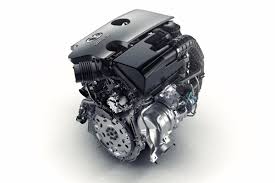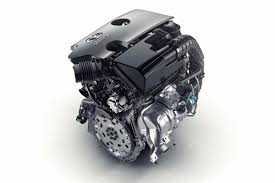
Internal combustion engine (ICE) vehicles may still be in use by 2050, according to automaker Stellantis, necessitating the reduction of their carbon emissions in the interim.
With names including Fiat, Peugeot, and Jeep, the third-largest automaker in the world by sales announced this week that tests it conducted with Saudi Arabia's Aramco had revealed 24 different internal combustion engines in European vehicles it has made since 2014 can use cutting-edge e-fuels without modification.
Even though the European Union has excluded vehicles that operate on e-fuels from its 2035 deadline to phase out new carbon dioxide-emitting vehicles, Stellantis has reiterated its promise to having all new car sales in Europe be battery-electric by 2030.
According to Christian Mueller, Stellantis' Senior Vice President of Propulsion Systems for the EMEA region, many of the new ICE cars Stellantis will be selling between now and 2029 will still be operating today.
"We have to really take care about our inventory fleet," he said, adding that the long lifespan of cars made the development of synthetic e-fuels, which are produced with renewable energy, more important.
"I think 25% of our vehicles are still in use after 20 years. Hence, this kind of exposure time to e-fuels is considerable, very considerable," he told a briefing.
With a possible decrease in CO2 emissions of up to 400 million metric tonnes between 2025 and 2050, Stellantis believes that its engine types that are compatible with e-fuels represent around 28 million vehicles on European roads.
However, many sceptics point out that due to their limited availability and expensive price, e-fuels are not a realistic option in the near future.
Production of e-fuels is anticipated to begin at the group's two demonstration plants in Saudi Arabia and Spain in early 2025, according to Aramco's Transport Chief Technologist Amer Amer.
Executives from Stellantis and Aramco stated that, "in the future," it is anticipated that e-fuel availability will expand and their prices will decrease, in part due to favourable taxation in the European Union. However, they did not provide any more specific projections.
(Source:www.flipboard.com)
With names including Fiat, Peugeot, and Jeep, the third-largest automaker in the world by sales announced this week that tests it conducted with Saudi Arabia's Aramco had revealed 24 different internal combustion engines in European vehicles it has made since 2014 can use cutting-edge e-fuels without modification.
Even though the European Union has excluded vehicles that operate on e-fuels from its 2035 deadline to phase out new carbon dioxide-emitting vehicles, Stellantis has reiterated its promise to having all new car sales in Europe be battery-electric by 2030.
According to Christian Mueller, Stellantis' Senior Vice President of Propulsion Systems for the EMEA region, many of the new ICE cars Stellantis will be selling between now and 2029 will still be operating today.
"We have to really take care about our inventory fleet," he said, adding that the long lifespan of cars made the development of synthetic e-fuels, which are produced with renewable energy, more important.
"I think 25% of our vehicles are still in use after 20 years. Hence, this kind of exposure time to e-fuels is considerable, very considerable," he told a briefing.
With a possible decrease in CO2 emissions of up to 400 million metric tonnes between 2025 and 2050, Stellantis believes that its engine types that are compatible with e-fuels represent around 28 million vehicles on European roads.
However, many sceptics point out that due to their limited availability and expensive price, e-fuels are not a realistic option in the near future.
Production of e-fuels is anticipated to begin at the group's two demonstration plants in Saudi Arabia and Spain in early 2025, according to Aramco's Transport Chief Technologist Amer Amer.
Executives from Stellantis and Aramco stated that, "in the future," it is anticipated that e-fuel availability will expand and their prices will decrease, in part due to favourable taxation in the European Union. However, they did not provide any more specific projections.
(Source:www.flipboard.com)














